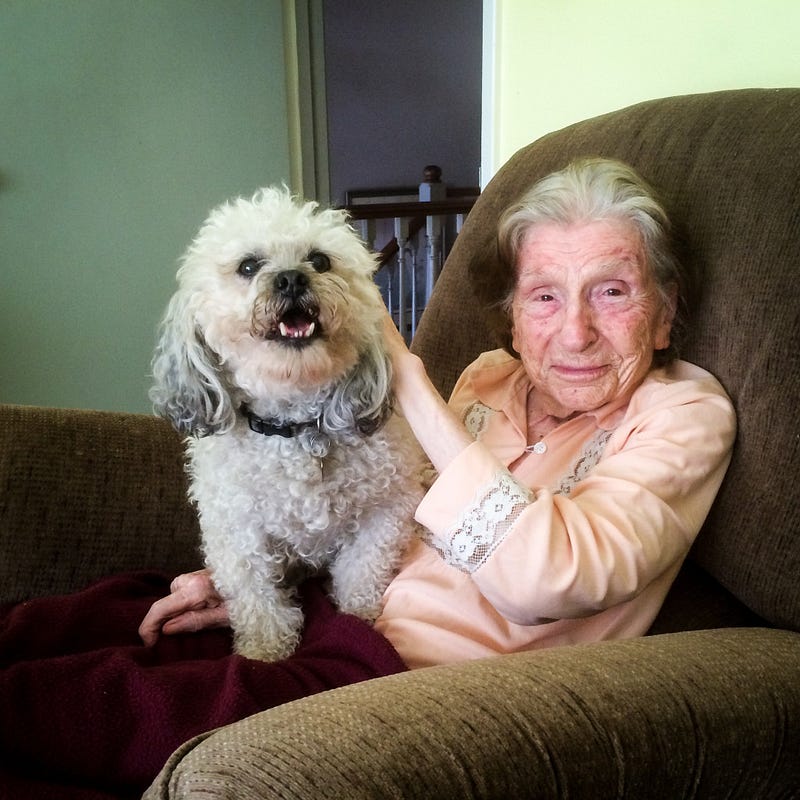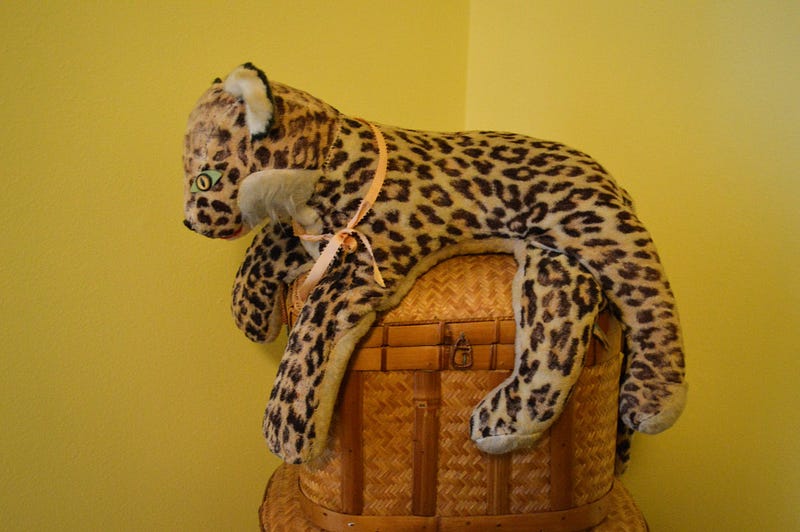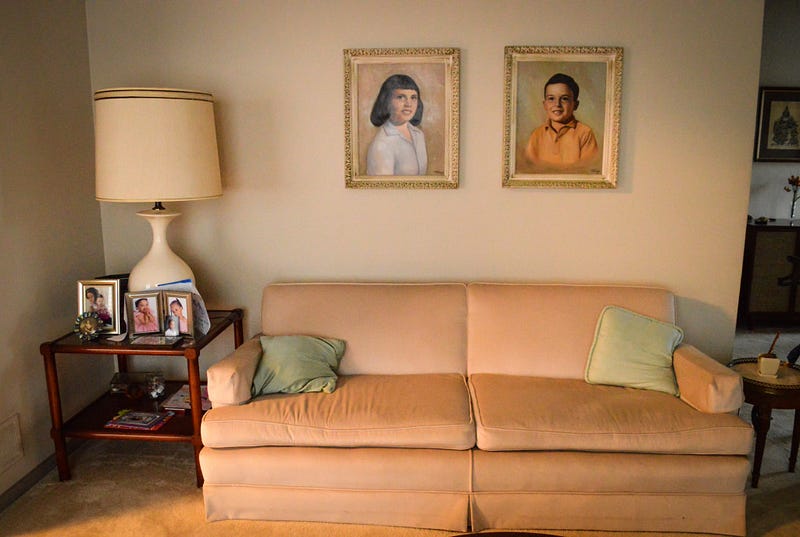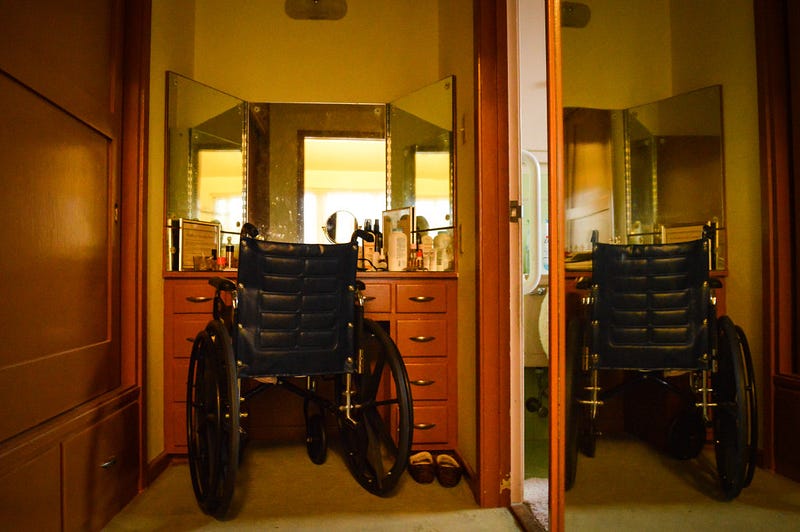Empty House
A first-person look at the process of letting go
STORY AND PHOTOS BY NIKKI SHAPIRO
My grandmother’s hands were the most delicate hands I’ve ever seen.
They were covered in freckles and spotted with age. Inexplicably, she had one of the strongest grips I’ve ever experienced.
When she talked to me, she always held my hands in her own. Her grip was strong. I knew that once she had a grasp, I was there to stay for a while. There would be days I would hold her hand for hours. Over the summer or after school I would take the short 15-minute walk, with my dog Charlie, from my house to my grandma’s to hold her hand and catch up on life.
The last time I went to my grandma’s house I knew she wouldn’t be there to hold my hand. Frieda Shapiro passed away on Oct. 9, 2015, 11 days shy of her 96th birthday.
It was a few days before Christmas and my father, sister and I walked to her house to find what we wanted to keep amongst her possessions.
A part of me thought that it wasn’t true. I wanted to believe she would be there waiting to hold my hand.
My chest tightened as I walked up the steps to her house. My heart felt like it was in one of my grandma’s vice grips.
We started with the bedroom.

“Is no one really going to take this?” I asked my father, pointing to a worn, stuffed leopard wearing a faded pink ribbon as a collar in the corner of my grandma’s bedroom. I remember seeing the leopard throughout my childhood; a watchful guardian protecting my grandma as she slept.
I stared at the leopard’s face, trying to find some ounce of justification for bringing it with me. ‘What am I going to do with an old stuffed animal anyways,’ I thought. At that moment I felt angry, the leopard had failed its job of protecting my grandma. I left it there.
I looked over to the closet in the hallway. There was her wheelchair with her fuzzy leopard moccasins next to it. It was a big decision for her to get a wheelchair and replace Johnnie Walker, the walker she named after one of her favorite drinks. Seeing her wheelchair made me wish I could see her walk down that hallway one more time.
I walked out of the bedroom and made my way into the kitchen. I will always remember how my grandma ate. She was a meticulous eater and often picked at her food. My father tells me that I’m a lot like her that way. We both eat like birds.

I sometimes wonder if I’ll leave a similar idiosyncratic legacy for the people in my life. Will people remember how I ate when I die?
I feel that leaving a legacy, an emotional inheritance, is more important than leaving a monetary inheritance. Maintaining family traditions, life stories, values and wishes help to keep loved ones alive even after they pass on.
I walked into the family room with my father and sister. Photos of smiling friends, kids, grandkids and great-grandkids smiled back at us from all corners of the room. Two large oil paintings hung above the sofa as the centerpiece of the room.
She always put family above all else.
When asked what made her most proud in life she would always rotate her answers between “My kids, my grandkids, my great-grandkids.”
She had three kids, two girls and one boy. When they were young my grandma commissioned an artist to paint their portraits. She loved all the paintings. Susan, the oldest daughter, embarrassed by how she looked, hated the painting of herself.
I once found the painting of Susan tucked away in a closet hidden under some old coats. I asked my grandma why she didn’t hang it up after Susan moved out.
“Because I love her,” she said. She always put others before herself.
My father went to the couch and sat beneath his painting. My father is an incredibly talkative person. Once we got to the family room, he was suddenly quiet. I looked around the room at all of the pictures of smiling kids, grandkids and great-grandkids then looked back to my father and saw the deepest sadness.
I asked if I could take his picture with his painting. Knowing the moment would be photographed he plastered on a smile for the camera. He then reminded me of the final thing my grandma had left me.
In her will she left me a portion of money and said to do something fun. When I initially learned of this, I felt a wave of emotions.

I knew this was my grandma telling to live life to the fullest. It’s a cliché that only the living tells one another, something I never truly understood until now.
My father, sister and I gathered our things and made our way to the door. I looked down at my hand on the knob and thought about all of the things she left me. I knew I was closing the door on all the physical belongings my grandma had left behind, but I felt that her spirit would never leave me. Holding the knob, I looked down at my back of my hand at the freckles covering my pinky and pointer fingers, I thought of my grandma’s hands. Then I let go.

